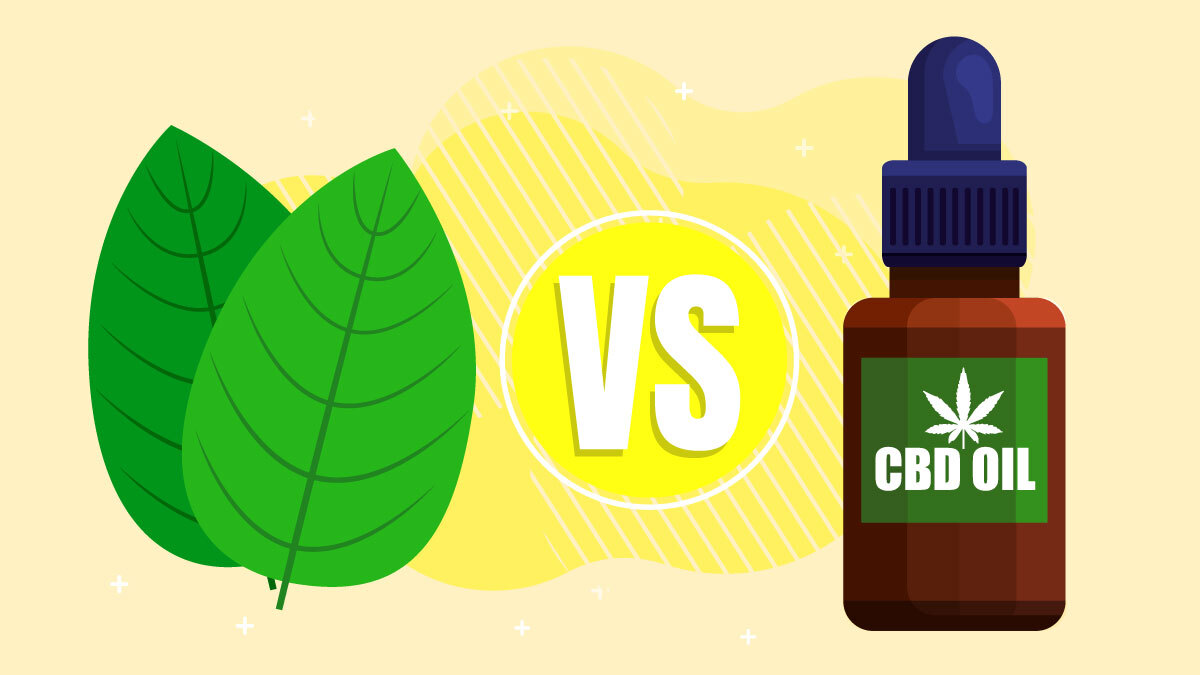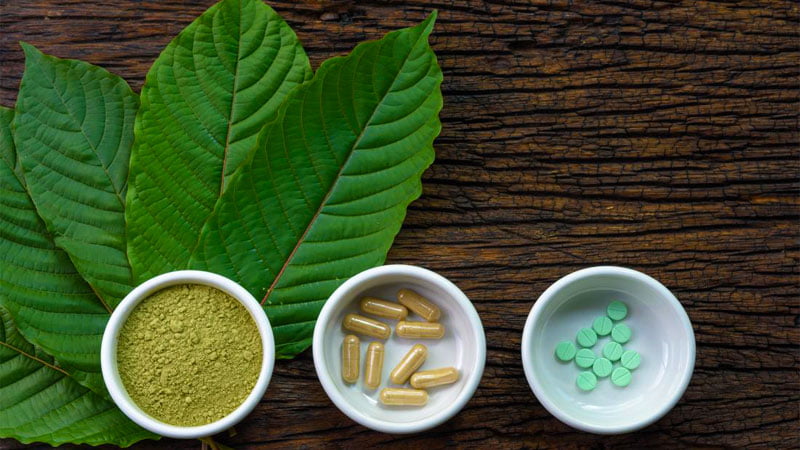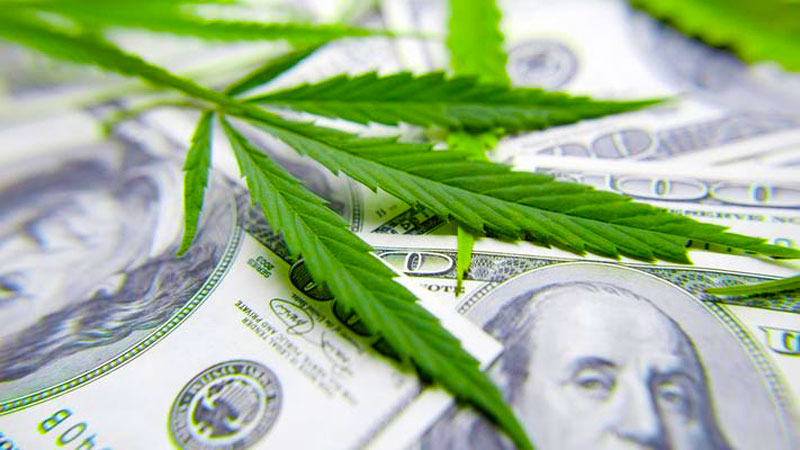Kratom vs. CBD: Which One is Better for Anxiety, Pain, Energy, & Sleep

At first impression, CBD and kratom overlap in many aspects. Both compounds come from natural botanical sources and provide many similar health benefits.
People use CBD and kratom to alleviate chronic pain, support restorative sleep, and manage anxiety and depression.
While both plant extracts have a lot in common — they are very different when it comes to their mechanisms of action.
This article will help you understand the differences between CBD and kratom on top of highlighting their strengths and limitations.
After reading this piece, you’ll be able to map out your priorities and choose the best product for your health needs.
What is Kratom?

If you read my blog regularly, you know I have strong feelings for CBD; you can tell by the number of articles on this website.
But, if you’re new to CBD, you may want to check out my section of CBD guides to get a stronger grip on this niche.
Now to kratom.
Kratom (Mitragyna speciosa) is a type of shrub coming from the coffee plant family. It occurs all across Southeast Asia — including Thailand, Vietnam, Laos, Cambodia, Indonesia, and Bali.
Traditionally, the native people of the said regions either chewed the kratom leaves or brewed them into tea. The effects are stimulating — much like coffee — so the plant was used to enhance energy and promote productivity during work.
However, kratom also has some unique features that give it a whole new range of benefits.
In larger amounts — more than 7 grams of the leaf), kratom gains an entirely different profile of effects. Alkaloids in the leaves bind to the opioid pain receptors — which gives it significant painkilling and euphoric benefits.
The more kratom you consume, the more sedative the effects, which may also overpower the initial stimulant action and help you achieve more restorative sleep.
People mostly take kratom as an alternative to coffee in lower doses and as an alternative to alcohol or opioids in higher concentrations.
What’s the Difference between CBD Oil and Kratom?
You can use both CBD and kratom to manage pain, anxiety, and insomnia — but this is where the similarities end.
The active compounds in CBD extracts have a completely different way of working their effects.
CBD modulates the endocannabinoid system (ECS), while kratom is the agonist of adrenergic and opioid receptors.
Their safety profile, legality, and origin are also different.
In essence, CBD is better for inflammation and long-term (chronic) pain and anxiety.
Kratom is better in low amounts as a stimulant or nootropic; higher doses have decent effects on short-term (acute) pain.
CBD has a better safety profile than kratom and can be used as part of one’s daily supplementation. Kratom, on the other hand, should be avoided long-term because it can be addictive over time due to its habit-forming properties and cause opiate withdrawal, in which case CBD can help alleviate withdrawal.
CBD vs. Kratom: Comparison Chart
| Metrics | CBD(Cannabis sativa) | Kratom (Mitragyna speciosa) |
| Effects of Low Doses |
|
|
| Effects of High Doses |
|
|
| Safety |
|
|
| Side Effects |
|
|
| Legal Status | Legal in all 50 states
Legal in Europe Legal in Canada, Mexico, & most of South America |
|
| Origin |
|
|
| Active Ingredients |
|
|
| Pharmacology |
|
|
| Product Types |
|
|
| Cost |
|
|
1. Benefits that CBD vs. Kratom Provide
CBD and kratom can be used to tackle the same health problems — but they use completely different mechanisms to achieve their effects.
In short, kratom is better for acute pain relief, opiate withdrawal symptoms, and improving focus and attention span (low amounts) compared to CBD.
CBD, on the other hand, offers greater benefits for conditions requiring long-term use. This could include anxiety, insomnia, pain, depression, autoimmune conditions, skin disorders, neurodegenerative diseases, epilepsy, and more.
CBD vs. Kratom for Pain
The most striking similarity between CBD and kratom is how they reduce pain.
CBD uses the endocannabinoid system (ECS), which is made of two sets of receptors involved with the regulation of homeostasis (a biological term for balance). By modulating these receptors, CBD can control the extent to which we feel pain (1).
While it doesn’t block pain completely, it can reduce its severity.
The mechanism of kratom is very different. It’s made of several alkaloids that target opioid receptors located in the brain and spinal cord. These receptors serve as gates for pain signaling. By activating the opioid receptors, the passage closes — resulting in blocked pain signals (2).
This is the same mechanism used by prescription opioids such as morphine and oxycontin.
To wrap it up, CBD will be much better for any pain stemming from inflammation as the main cause. Therefore, it can bring more noticeable effects for chronic pain. Kratom, in turn, is better for short-term relief from just about any kind of pain.
CBD vs. Kratom for Sleep

Insomnia has many potential causes, such as disturbances in the sleep-wake cycle, blood sugar imbalances, chronic pain, and depression.
CBD is without a doubt a better sleep aid because it can address all these potential triggers.
Higher doses of CBD have a sedative effect on the user — helping them fall asleep when they’re having a difficult time (3).
But, even small doses of CBD can modulate the activity of our sleep-wake cycle by acting as a wake-promoting agent and reducing symptoms of anxiety or racing thoughts.
CBD is also a potent muscle relaxant, not to mention that it can support healthy joints. This, in turn, may help prevent waking up at night from higher cortisol levels.
With kratom, you can achieve better sleep, but it’s a matter of hit or miss here. Although kratom is a sedative, it also has stimulant effects. Gauging the wrong dose or using stimulating strains can deteriorate insomnia compared to where you started.
Even if you take high doses of this plant, you may feel uncomfortable side effects commonly known as the “kratom wobble” — including dizziness, nausea or vomiting, and blurry vision.
Lastly, kratom isn’t a good long-term remedy for insomnia. Occasional doses are good if you know how your body responds to alkaloids; however, long-term use may cause dependence, which may worsen your insomnia.
CBD vs. Kratom for Anxiety & Depression
The anxiolytic (anti-anxiety) effects of CBD make it a unanimous winner in this clash.
CBD operates on several different pathways involved with anxiety — including serotonin, dopamine, GABA, and glutamate — all of which are engaged with the symptoms we define as anxiety.
Numerous large-scale clinical studies have confirmed the effectiveness of CBD for managing stress and anxiety (4).
There aren’t many natural supplements that can get close to the anti-anxiety potential of CBD — maybe save for the Kava plant, which is one of the best natural anti-anxiety remedies in the world.
As for its short-term effects on depression, CBD might be less effective than kratom because it doesn’t directly induce euphoria. Instead, CBD takes some time to bring back the balance between neurological pathways, including neurotransmitters and electrical connections in the brain.
CBD can also reduce neuroinflammation — one of the main causes of depression.
When it comes to kratom, its anti-anxiety effects are very mild and can be achieved only in higher doses. The low-dose range is more stimulating and can make your anxiety even worse.
Higher doses of kratom make it a great antidepressant thanks to its ability to activate the opioid receptors and trigger dopamine release in the brain. However, these effects are short-lived and can have a detrimental effect on your mood as the body becomes dependent on the effects of alkaloids (5).
CBD vs. Kratom for Focus & Concentration
CBD can support focus and concentration, but again, these effects are achieved indirectly. The idea is that increasing your resilience to stress can promote better mental clarity and focus. They also don’t apply to people who aren’t stressed or anxious.
Kratom is a much better stimulant, so if you want to use one of these two to boost your productivity, I suggest sticking to Mitragyna speciosa. It will stimulate brain activity and make you feel more alert and awake; the effects kick in within 30 minutes and last up to 3 hours (6).
CBD vs. Kratom for Immune System
Both CBD and kratom can be used to support healthy immune function.
CBD regulates this system through the ECS. This includes all elements of the immune system, such as blood cell and white cell production, allergic reactions, adaptive immunity, and T-cell activation and filtration (7).
CBD has even demonstrated the ability to deal with certain antibiotic-resistant bacteria.
Kratom can also enhance the immune system, and there are several ingredients in the plant that have been shown to offer direct immune-enhancing properties in animal studies — such as a saponin called daucosterol and the alkaloid isopteropodine (8).
However, none of these results have yet been replicated in humans.
2. The Safety Profile of CBD vs Kratom
There’s a significant difference in safety profiles between CBD and kratom.
CBD has been acknowledged by many health organizations, including the WHO, as a safe substance both for humans and animals.
Humans can tolerate doses as high as 1,500 mg of CBD daily administered for several weeks without any dangerous side effects.
The recommended dosage range for general use is between 5 – 80 milligrams.
Since CBD doesn’t bind to the CB1 receptor in the brain, it doesn’t directly trigger a surge of dopamine, unlike THC. For this reason, CBD isn’t habit-forming, nor can it cause physical addiction or dependence.
When it comes to kratom, there have been a few reports of deaths caused by its overdose in the past — although this is extremely rare.
In addition, long-term use can cause dependency and addiction over time. Of course, chances of becoming addicted to the plant are much lower than with prescription painkillers or illegal drugs like heroin or cocaine, but the potential for addiction is still higher than with cannabis.
Last but not least, Kratom has a long list of potential side effects resulting from its adrenergic effects and opioid effects, including low blood pressure, nausea, loss of muscle coordination, fatigue, and dizziness.
3. The Price Difference of CBD vs. Kratom

CBD and kratom are very comparable in terms of prices.
The cost of CBD is best calculated in dollars per milligram of CBD. This figure makes it easier to compare the affordability of different CBD products.
The most popular and cost-effective way of using CBD is in the form of oil. The cost per milligram of CBD in oil is around $0.07 – $0.10. With an average dose, which is at roughly 20 mg, the cost per dose revolves around $1.40 and $2.00. Stronger doses, such as 50 mg, may increase the cost per dose to around $350 – $7.00.
For assessing the cost of kratom, you should use a dollar-per-gram metric. The average price of kratom leaf powder is approximately $0.48 per gram. The average stimulating (low-dose) kratom is 5 grams — translating into the cost of $2.40. Sedating (higher) doses are around 10 grams on average, increasing the cost per dose to $4.80.
4. The Legal status Between CBD vs. Kratom
Both CBD and kratom have a long and complicated history with legal regulations. Cannabis and kratom have been widely legal for centuries (if not millennia); then they’ve got banned and are now to be made legal again.
Overall CBD is much less regulated than Kratom. It’s legal in most places across the world, provided that it comes from the hemp plant. Hemp is a fibrous variety of Cannabis sativa that contains 0.3% THC or less by dried weight.
Anything exceeding this limit is considered marijuana — which is still illegal in most countries (the exceptions are Canada, Uruguay, and Malta).
Kratom laws are much murkier. Some countries banned it driven by the fear of its addictive potential, while others allow it as an alternative to even more addictive prescription analgesics.
Brief Summary of CBD Laws Around the World:
- CBD is federally legal in the USA, although states have the right to control its availability depending on their inside regulations.
- CBD is legal in Canada, Mexico, South America, and most European countries.
- Most Asian and Australasian countries only allow CBD for medicinal purposes.
- You can order CBD online and have it delivered to most parts of the world, as long as your product contains no more than 0.3% THC.
- Any product with a THC content over 0.3% is considered marijuana and illegal in most countries.
Summary of Kratom Legality Around the World
- Kratom is federally legal in the USA, but certain states banned its sale (Alabama, Arkansas, Indiana, New Hampshire, Tennessee, & Wisconsin)
- Kratom is illegal in Canada and several EU countries (Denmark, Finland, Italy, Ireland, Lithuania, Romania, Russia, Poland, Sweden, Turkey, United Kingdom).
- Most South American and Asian countries have banned kratom.
Can I Take CBD & Kratom Combined?
With so many similar health benefits between CBD and kratom, some people decide to combine the two plants to get even more from their supplementations.
While certain scenarios make it reasonable to use CBD and kratom together, the overlap in their effects can increase the risk of side effects — especially if you take them in high doses.
The best way to maximize the benefits of your CBD & kratom treatment is to use a low dose of kratom for its stimulating effects and a low to moderate dose of CBD to mitigate the anxious side effects — similarly to how you mix CBD with coffee.
Ideally, you should take 4 grams of kratom powder dissolved in the water alongside 20 milligrams of CBD oil.
Avoid other stimulants, such as coffee, in this combination. Take both compounds at the same time and wait for a minimum of 60 minutes before taking more.
Summarizing the Differences Between CBD vs. Kratom
CBD and kratom have a lot of similar effects.
Both offer remarkable relief for pain and decent sedative effects in larger amounts. However, both supplements use completely separate mechanisms to achieve these effects.
CBD is the modulator of the endocannabinoid system — which is a neuroregulatory network. This provides CBD with high therapeutic versatility, making it a good option for long-term support for anxiety, insomnia, and pain.
The effects of kratom are more direct and stronger. Kratom is much better for acute pain relief but should be avoided long-term because it can be habit-forming and addictive.
Kratom is also a stimulant of the central nervous system — similar to caffeine. Mixing CBD and kratom should be approached with caution, and only after you’ve experienced at least several sessions with both compounds on their own.
Sources:
-
- Argueta, D. A., Ventura, C. M., Kiven, S., Sagi, V., & Gupta, K. (2020). A Balanced Approach for Cannabidiol Use in Chronic Pain. Frontiers in pharmacology, 11, 561. [1]
- Vicknasingam, B., Chooi, W. T., Rahim, A. A., Ramachandram, D., Singh, D., Ramanathan, S., Yusof, N., Zainal, H., Murugaiyah, V., Gueorguieva, R., Mansor, S. M., & Chawarski, M. C. (2020). Kratom and Pain Tolerance: A Randomized, Placebo-Controlled, Double-Blind Study. The Yale journal of biology and medicine, 93(2), 229–238. [2]
- Shannon, S., Lewis, N., Lee, H., & Hughes, S. (2019). Cannabidiol in Anxiety and Sleep: A Large Case Series. The Permanente journal, 23, 18–041. https://doi.org/10.7812/TPP/18-041
- Blessing, E. M., Steenkamp, M. M., Manzanares, J., & Marmar, C. R. (2015). Cannabidiol as a Potential Treatment for Anxiety Disorders. Neurotherapeutics: the journal of the American Society for Experimental NeuroTherapeutics, 12(4), 825–836. https://doi.org/10.1007/s13311-015-0387-1
- Müller, E., Hillemacher, T., & Müller, C. P. (2021). Kratom use for depression/anxiety self-management: challenges during the COVID-19 pandemic – A case report. Heliyon, 7(5), e07039. [3]
- Veltri, C., & Grundmann, O. (2019). Current perspectives on the impact of Kratom use. Substance abuse and rehabilitation, 10, 23–31. [4]
- Nichols, J. M., & Kaplan, B. (2020). Immune Responses Regulated by Cannabidiol. Cannabis and cannabinoid research, 5(1), 12–31. [5]
- Fluyau, D., & Revadigar, N. (2017). Biochemical Benefits, Diagnosis, and Clinical Risks Evaluation of Kratom. Frontiers in psychiatry, 8, 62. https://doi.org/10.3389/fpsyt.2017.00062